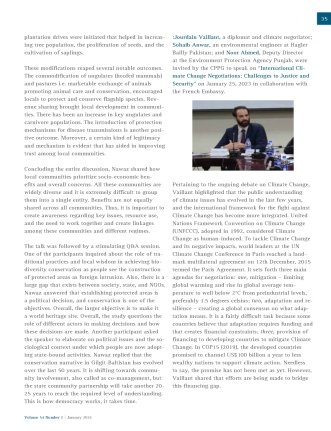
International Climate Change Negotiations: Challenges to Justice and Security
INTRODUCTION
Jourdain Vaillant, a diplomat and climate negotiator; Sohaib Anwar, an environmental engineer at Hagler Bailly Pakistan; and Noor Ahmed, Deputy Director at the Environment Protection Agency Punjab, were invited by the CPPG to speak on “International Climate Change Negotiations: Challenges to Justice and Security”Pertaining to the ongoing debate on Climate Change, Vaillant highlighted that the public understanding of climate issues has evolved in the last few years, and the international framework for the fight against Climate Change has become more integrated. United Nations Framework Convention on Climate Change (UNFCCC), adopted in 1992, considered Climate Change as human-induced. To tackle Climate Change and its negative impacts, world leaders at the UN Climate Change Conference in Paris reached a landmark multilateral agreement on 12th December, 2015 termed the Paris Agreement. It sets forth three main agendas for negotiation: one, mitigation – limiting global warming and rise in global average temperature to well below 2°C from preindustrial levels, preferably 1.5 degrees celsius; two, adaptation and resilience – creating a global consensus on what adaptation means. It is a fairly difficult task because some countries believe that adaptation requires funding and that creates financial constraints; three, provision of financing to developing countries to mitigate Climate Change. In COP15 (2019), the developed countries promised to channel US$100 billion a year to less wealthy nations to support climate action. Needless to say, the promise has not been met as yet. However, Vaillant shared that efforts are being made to bridge this financing gap.
Citations

